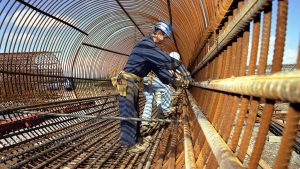New government, new rules, new political agenda
In a major blow to Ontario’s reigning Liberal government, on June 7, 2018 Doug Ford captured a Progressive Conservative majority. The Liberals lost official party status after leading the province for the past 15 years. The NDP under Andrea Horwath formed the Official Opposition and Green Party Leader Mike Schreiner captured the party’s first-ever seat in Ontario. Since being elected Ford has made headlines, scrapping the province’s cap and trade system, cutting the size of Toronto City Council and taking measures to “reduce red tape,” including initiatives that directly impact the construction industry.
Province announces OCOT will exist no more
Whether for or against the Ontario College of Trades (OCOT), big changes were afoot in 2018. In October, the newly-elected Doug Ford government announced it intended to “wind down” OCOT as “persistent challenges” had become apparent in how the skilled trades in Ontario were regulated. Reaction among construction stakeholders varied, but they all agreed that the College never achieved its potential. A replacement model for the regulation of the skilled trades and apprenticeship is anticipated in early 2019.
Open tendering an industry game changer
As part of the Restoring Ontario’s Competitiveness Act, the province’s Labour Relations Act (LRA) is slated to be amended to allow open construction tendering, meaning all qualified companies can bid on publicly-funded construction projects. Under the current tendering system, several municipalities and other public entities are treated as construction employers, which means they are required to contract their construction work to companies who are signatory to certain unions. Views on this announcement are varied, with some saying it’s violating collective bargaining rights and others saying it creates fairness across the board.
Ontario construction leaders prepare for cannabis legalization
Throughout 2018 Ontario construction industry associations, alliances and law firms hosted numerous events in preparation for the legalization of cannabis. Even after it became official on Oct. 17, 2018 the events continued as a way to prepare employers, workers and industry leaders of potential hazards and impacts. While there remain many unanswered questions, key takeaways include: employers and all workers onsite should know the signs of impairment; employers should have a solid drug and alcohol policy; and regardless of the substance, impairment is impairment.
Construction Act becomes official
As of July 1, 2018, various modernization rules came into effect to reflect changes to the former lien act legislation that dated back to the early ‘80s as part of Ontario’s new Construction Act. While prompt payment and adjudication provisions in the new act won’t take effect Oct. 1, 2019, many of the province’s construction lawyers and other stakeholders are urging those in the industry to learn the new rules now to avoid panic later on.











Recent Comments
comments for this post are closed